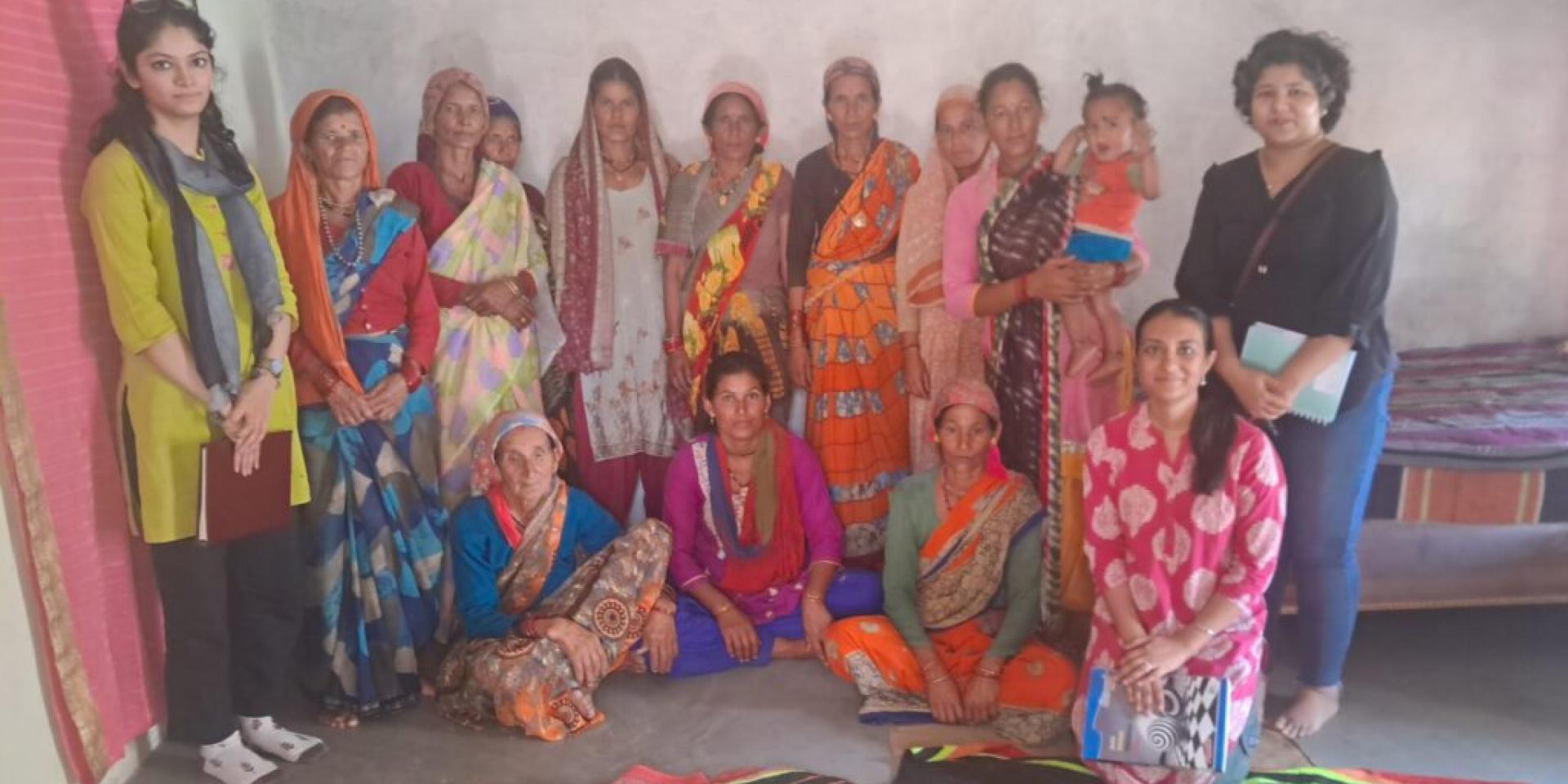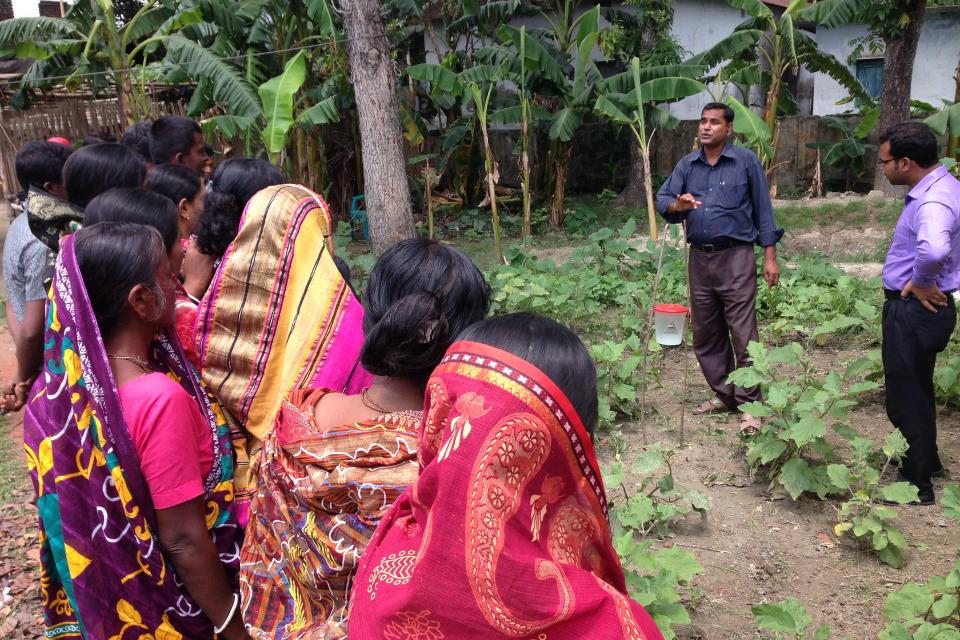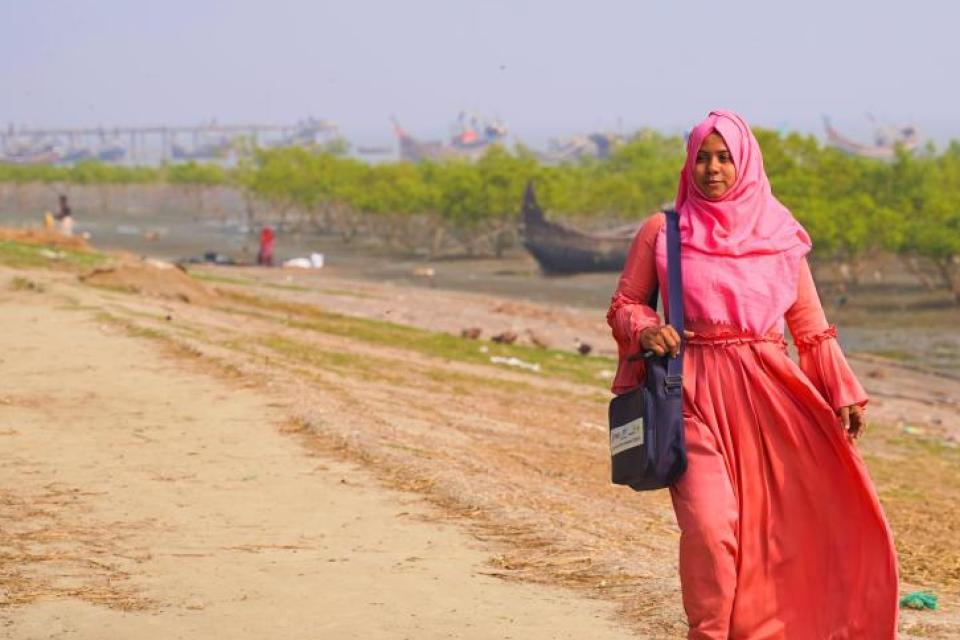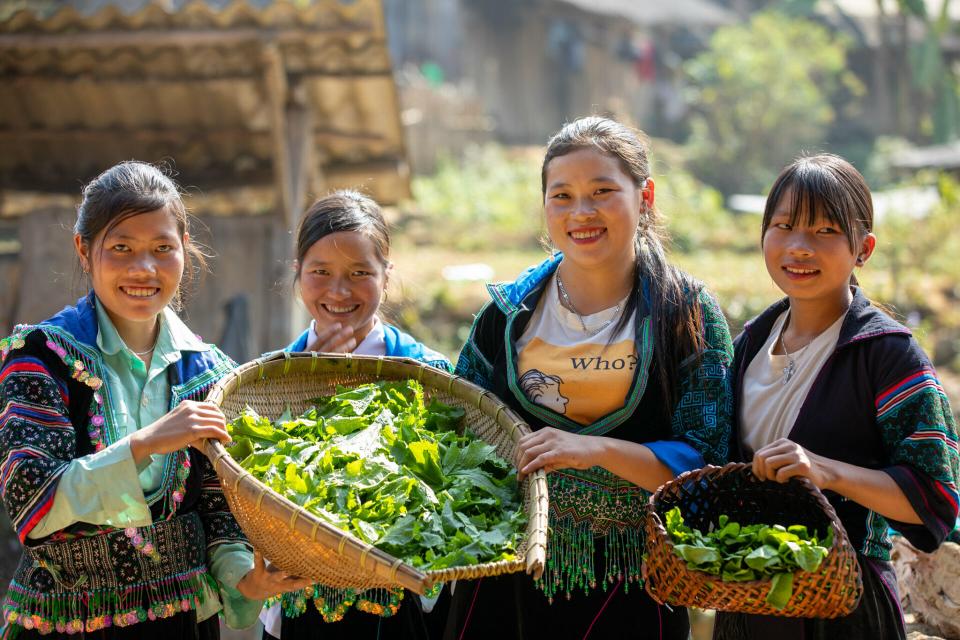How self-help groups are empowering women amid out-migration
 Photo: IWMI
Photo: IWMI
The groups are providing rural women with skills training leading to improved incomes as well as a greater say in local decision-making structures.
Out-migration is a prominent trend in Pithoragarh district in the state of Uttarakhand. Young and educated men are increasingly migrating to other states seeking better employment opportunities. Young women are left with the children and the elders to look after the home and the farm.
Growing burden on young women
With majority of men away, young married women in the region have taken up a wide range of responsibilities. They are responsible for managing agricultural tasks, caring for livestock, looking after children and handling most of the household work. Activities include cultivating rice, maize and vegetables primarily for self-consumption. Most households keep cows, and 4-5 goats, with women taking on the bulk of farming and livestock duties. Women are actively involved in rice transplanting and harvesting. Apart from engaging in agriculture and allied sectors, women also work as wage labor in Mahatma Gandhi National Rural Employment Guarantee Scheme.
Collecting firewood is another task mostly carried out by women. In these reserved forests, felling trees is strictly prohibited, but men still tend to cut the branches. The often-resulting reprimand by forest guards leads to fewer men being interested in the task.
Women end up managing not only household activities, livestock and agricultural labor but also firewood collection. Educated young women may often remain unemployed, either because their families are reluctant to send them away for jobs or because they are unwilling to take up unskilled labor jobs available in the region.


